The Dairy Debate
Keep your bones strong they say, drink milk they said. You need more calcium in your diet! MORE DAIRY!! Obediently we guzzled away …but then…oh wait
Released last month in the largest study to date on milk.
105,000 people were watched drinking milk in Sweden over 22 years. Only looking at 39-74 yo women and 45-79 yo men they were followed for 22 and 13 years respectfully (so a fairly long time) and a ¼ of all these Swedes died. It turns out that those women who had greater than or equal to 3 glasses of milk daily had almost double the rate of death than their counterparts (those that had less than this amount).
There was also a greater risk of fracture (including hip fracture) – yes you hear that right, a GREATER risk of fracture!
Dietary advice is tricky. One minute we are told how great the virtues of a certain food is and the next thing we hear is how wilfully detrimental we have been to our own health.
The extreme swings to either side produce fear, and this lends itself to many ‘upper fashion’ diets (click here for a list of just some). Here again we see a piece of advice changing dramatically. From drink milk to get your calcium and keep your bones strong to, don’t drink milk, it predisposes to fractures!
What are we to believe and who?
With the internet freely dispensing advice at will there are a number of things to know about dietary ‘evidence’. There are many who claim they are experts in nutrition and unfortunately a lot of dietary advice out there is built on fairly weak observational data. Given we cannot (or should I say adults typically ‘do not’) live on milk alone, it is difficult for all other dietary factors to be accounted for. To state that it is the milk that is killing our blonde Scandinavian friends we need to be able to say that there is no other foodstuff that these people are taking that could kill them earlier. With a diet history it is almost impossible to account for each and every foodstuff someone has eaten over the last 22 years. Okay maybe you could have a go…..what did you eat three days ago for dinner? And how many glasses of water did you have?
It is extremely hard to produce cold hard evidence when it comes to studying the cause and effect of different foods on our health. There are so many factors that can’t be accounted for because unfortunately it isn’t very ethical to lock people up for 10 years and feed them all the same diet and control all other variables. Therefore the evidence that comes from nutrition studies should always be considered within context and never extrapolated beyond their findings in order to satisfy our never-ending quest for the miracle food or diet.
Take for example the findings we’ve so fondly adopted from the studies on the cardiovascular health benefits of chocolate and red wine. Did these studies account for other factors in the diet of the subjects they studied? What about the varying sugar content of different chocolate and the huge amount of evidence to suggest the detrimental effect of alcohol on our health? How big was the study and how was the information gathered? We need to stop and think about these things because the truth is, there is a huge ocean of nutritional advice out there all with varying quality and it is very easy for anyone to form an opinion from reading just one study and sell it as gospel.
What are we to do with the evidence from this new study on milk?
Does it mean that we should cut it out of our diet completely? The study suggests that there is a component of milk consumption that could lead to an increased risk of early death BUT the study also found that consumption of fermented dairy (such as yoghurt, cheese, kefir) can actually REDUCE fractures and rates of mortality. It seems the reason is due to the reduced amount of milk sugars (lactose and galactose) that get gobbled up by the friendly probiotic bacteria in fermented dairy products.
So it looks like the best way of going about this would be to reduce your intake of regular dairy products and focus more on the fermented options, which still contain plenty of calcium. If you’ve decided to cut dairy out of your diet it does make it harder to achieve your calcium requirement but it isn’t impossible. There are plenty of choices available such as: green leafy vegetables, broccoli, nuts, seeds, calcium fortified almond milk, tahini and sesame seeds, kelp, chia, salmon, mackerel and sardines with bones, oysters and mussels. But remember, unless you look after the rest of your diet and lifestyle, cutting out dairy will not make a huge difference to your risk of chronic disease.
If you would like help with this, drop me an email at hello@lizannemarr.com to organise an email consult. I can help you plan a diet and lifestyle that suits your individual needs and dietary preferences.






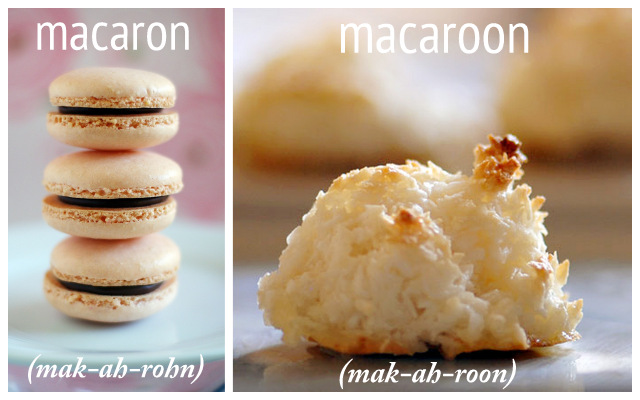


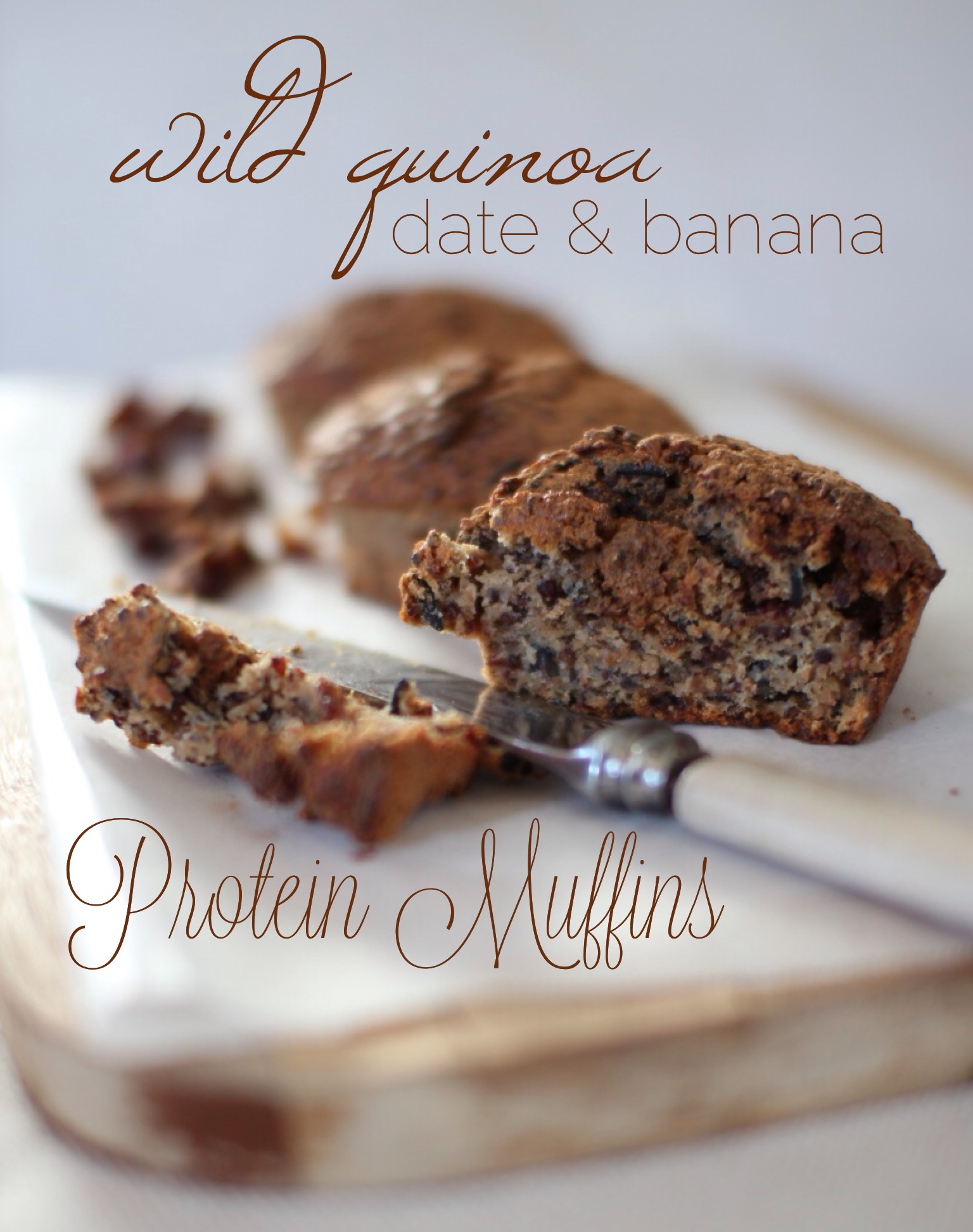
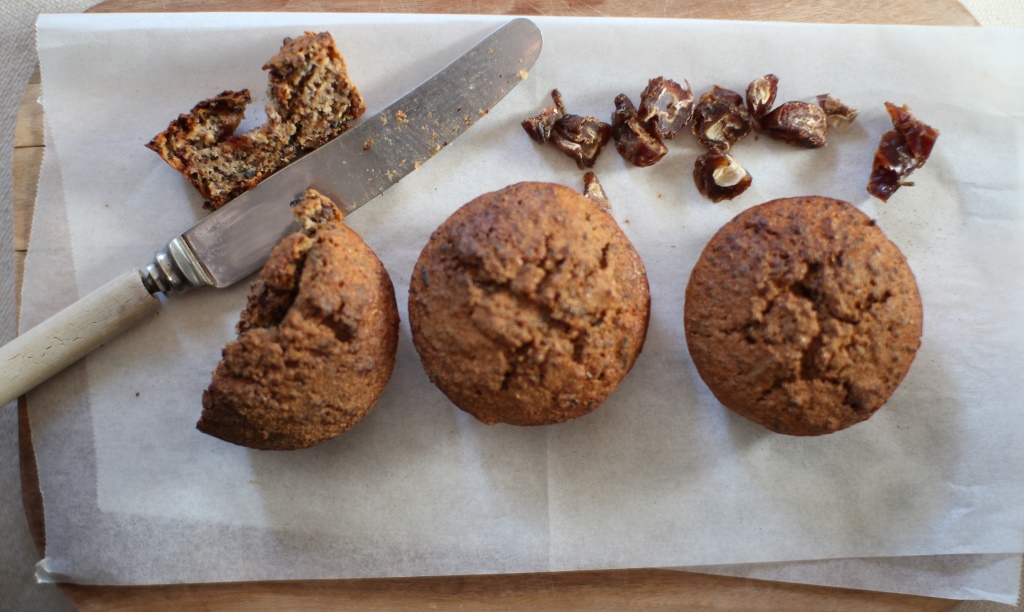
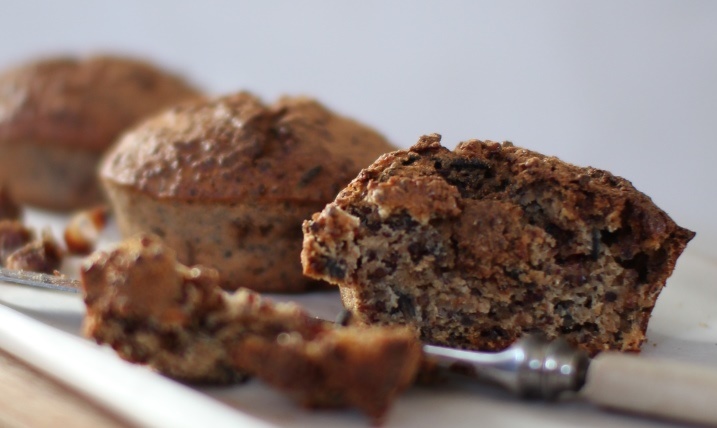
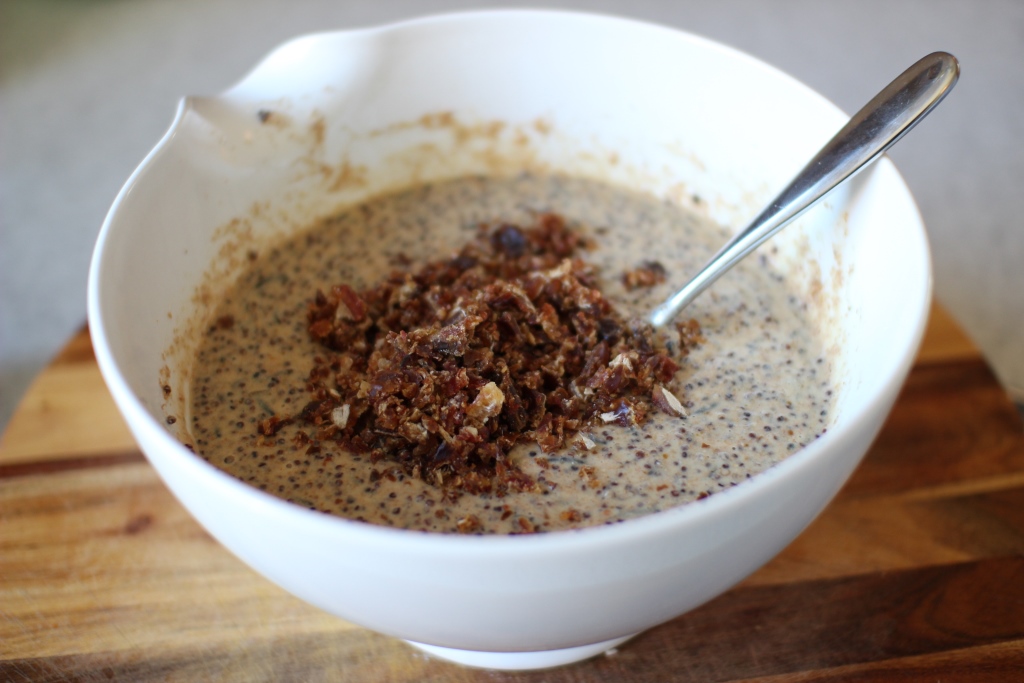
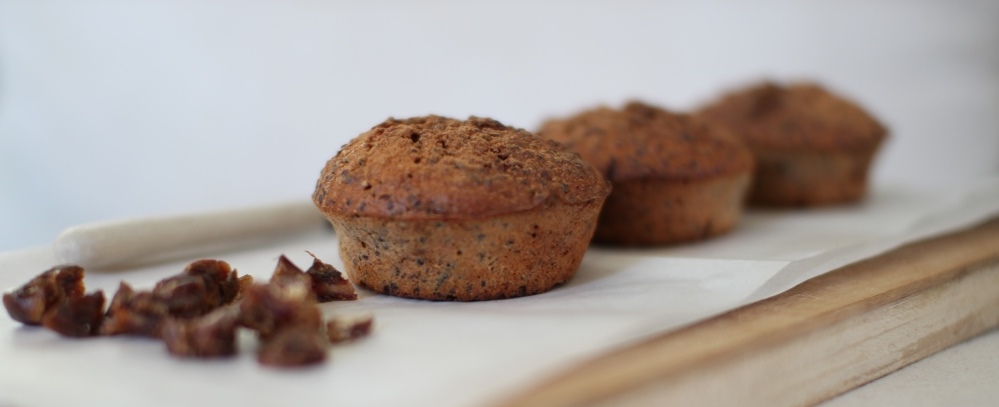
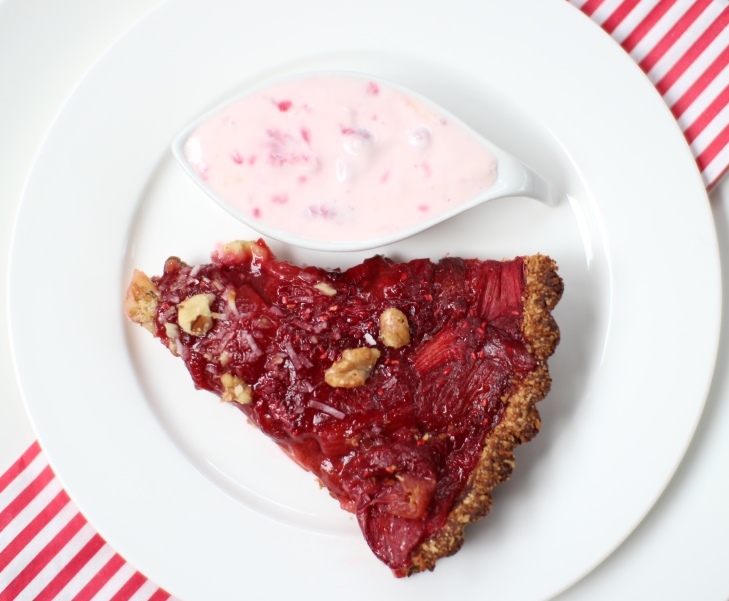


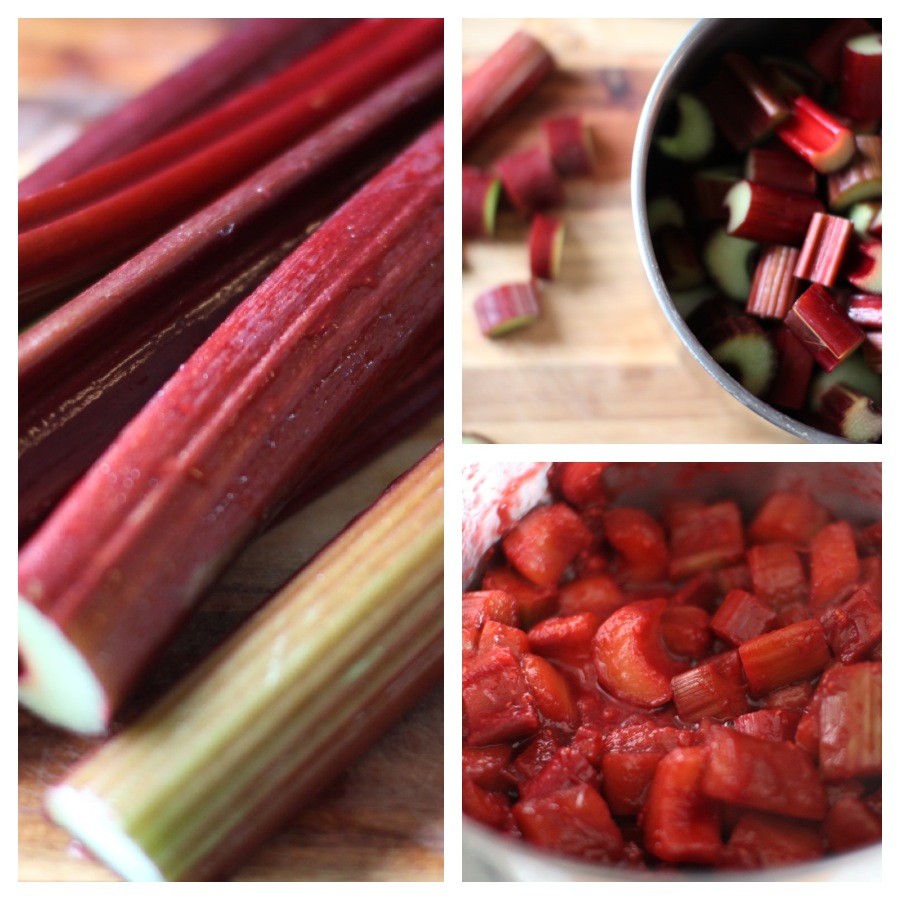
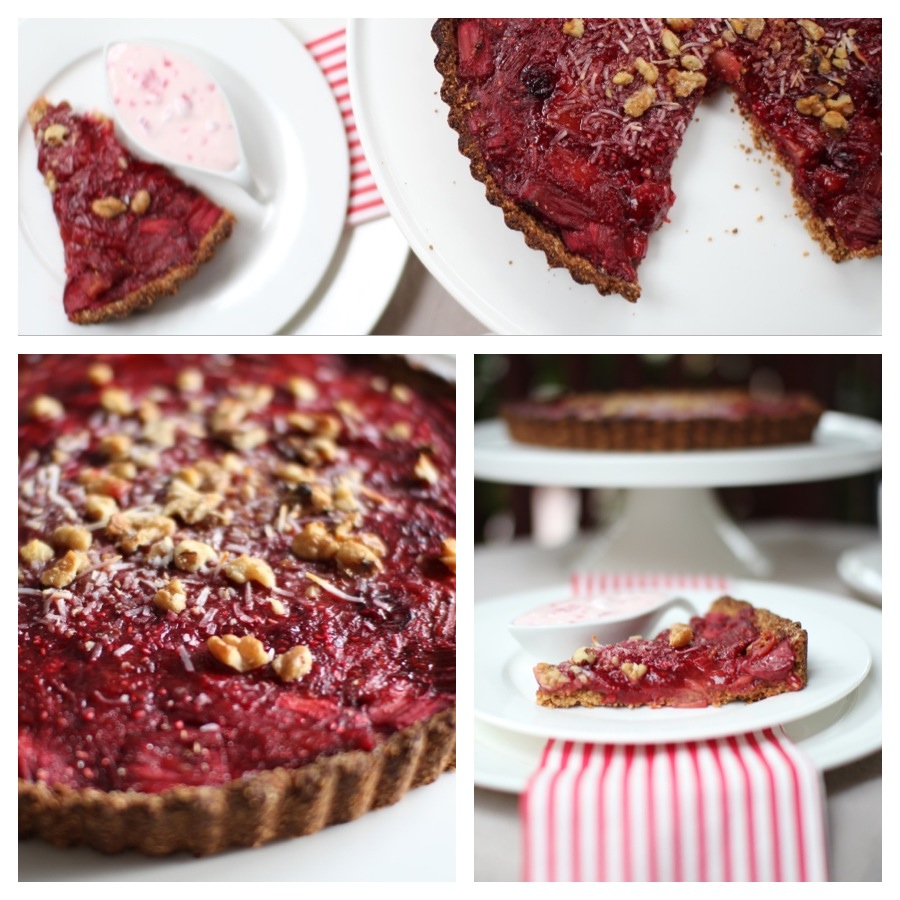









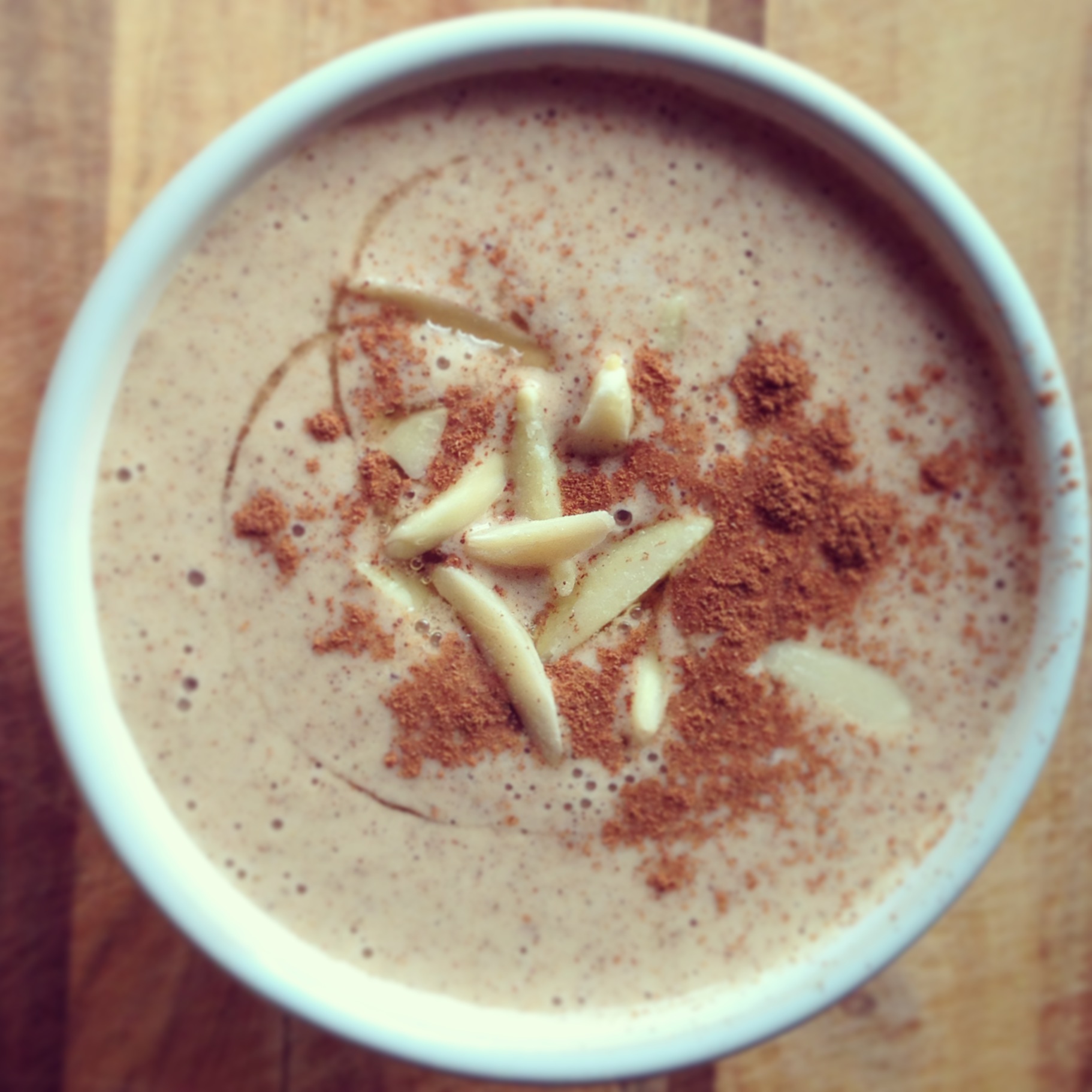

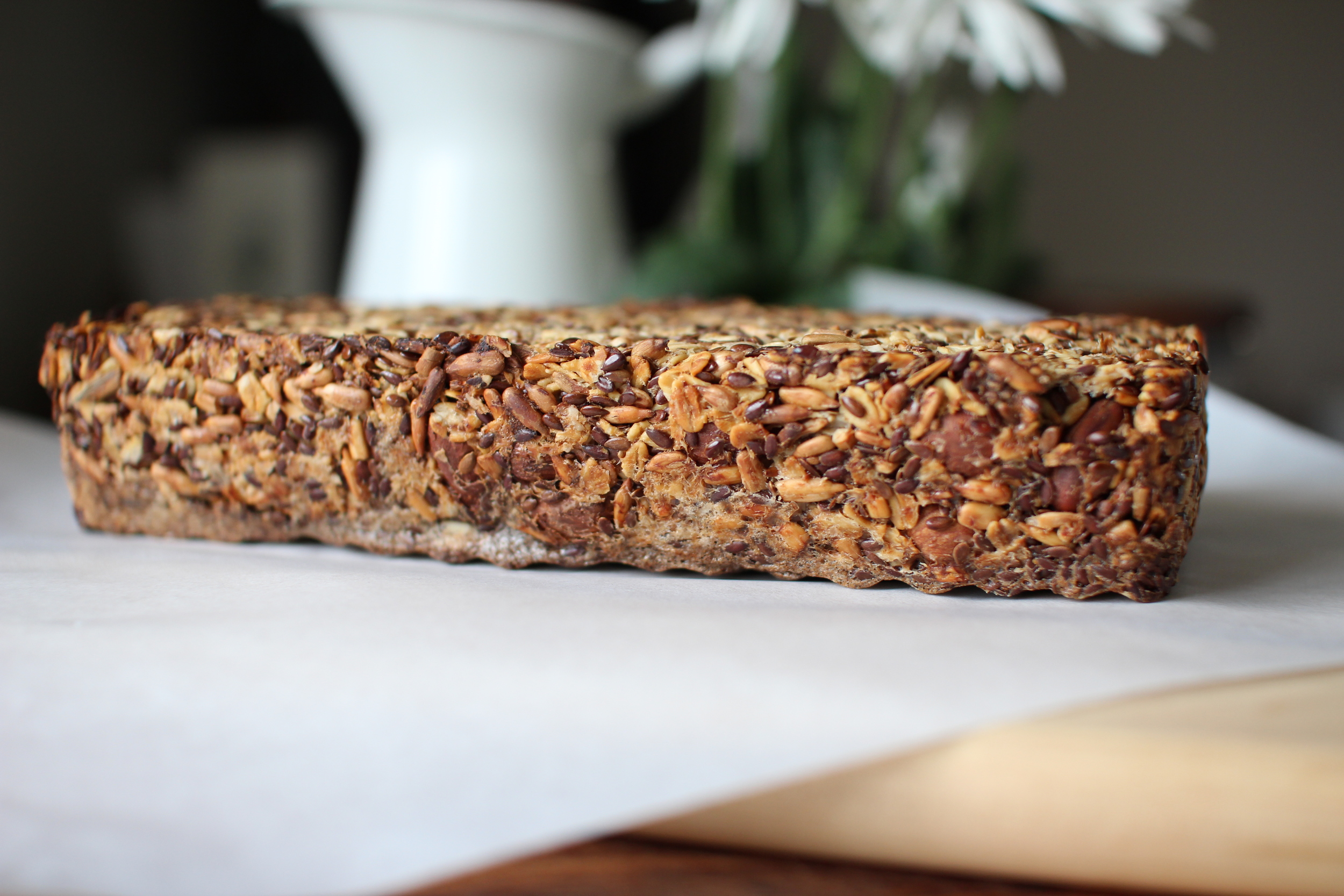
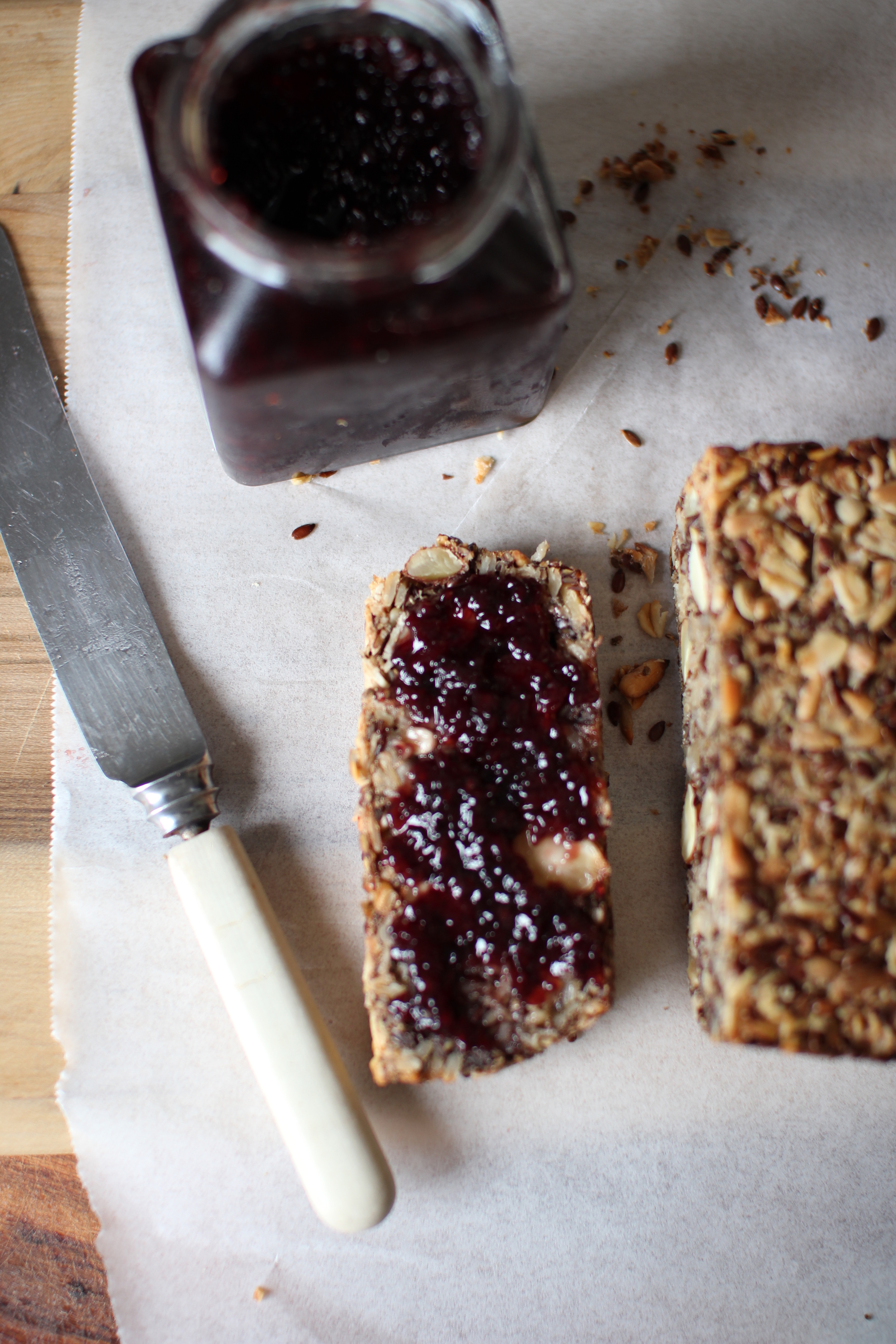
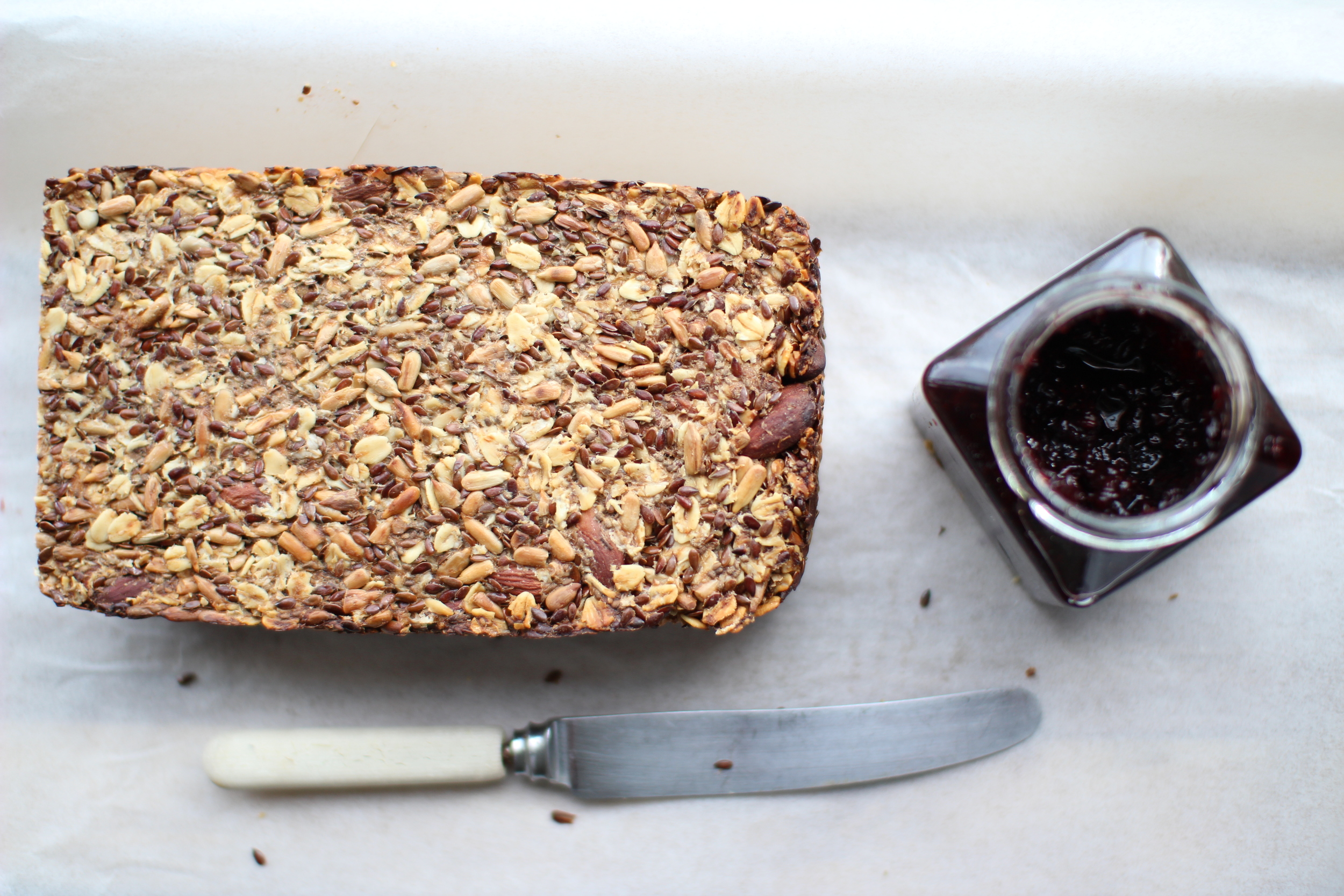
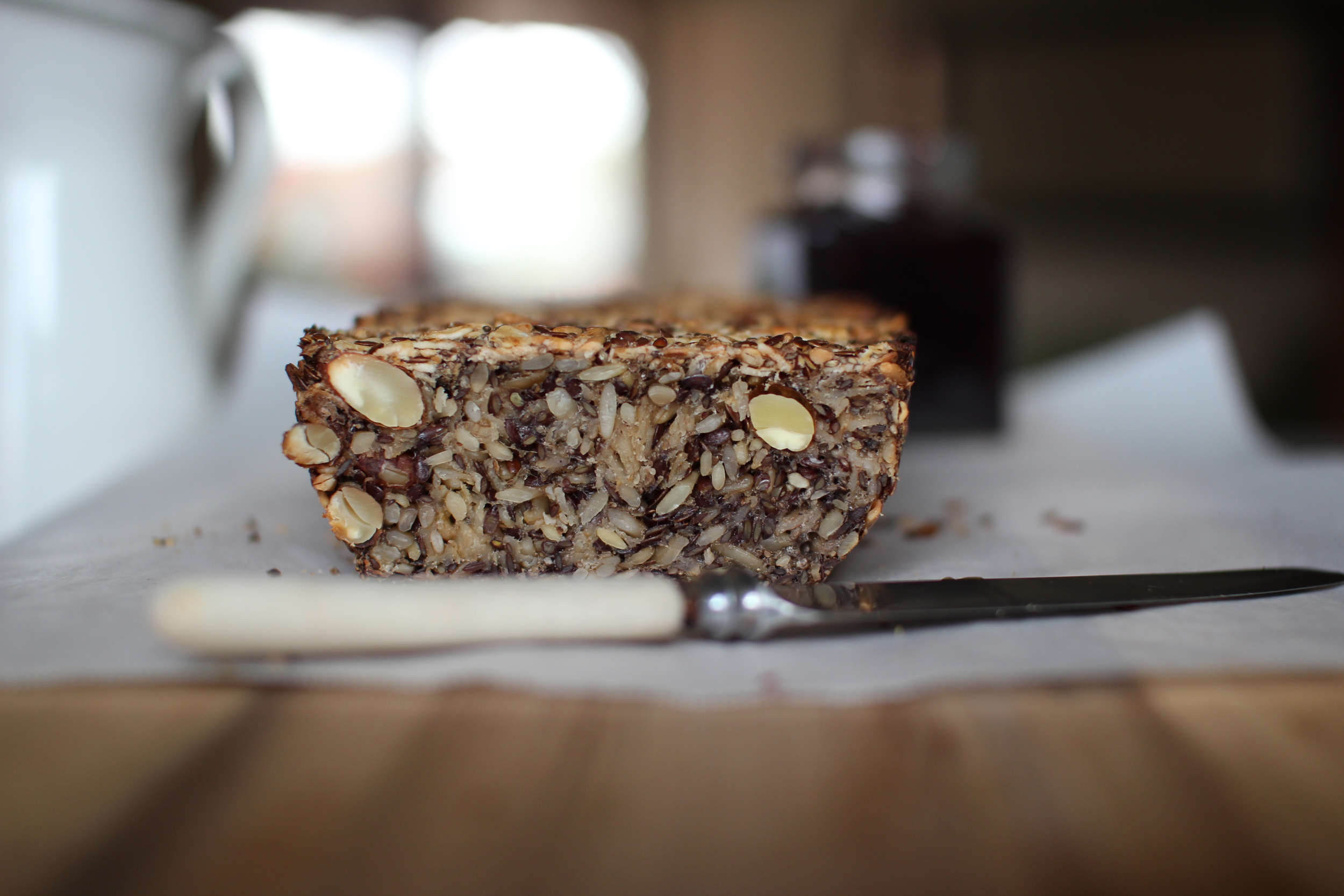
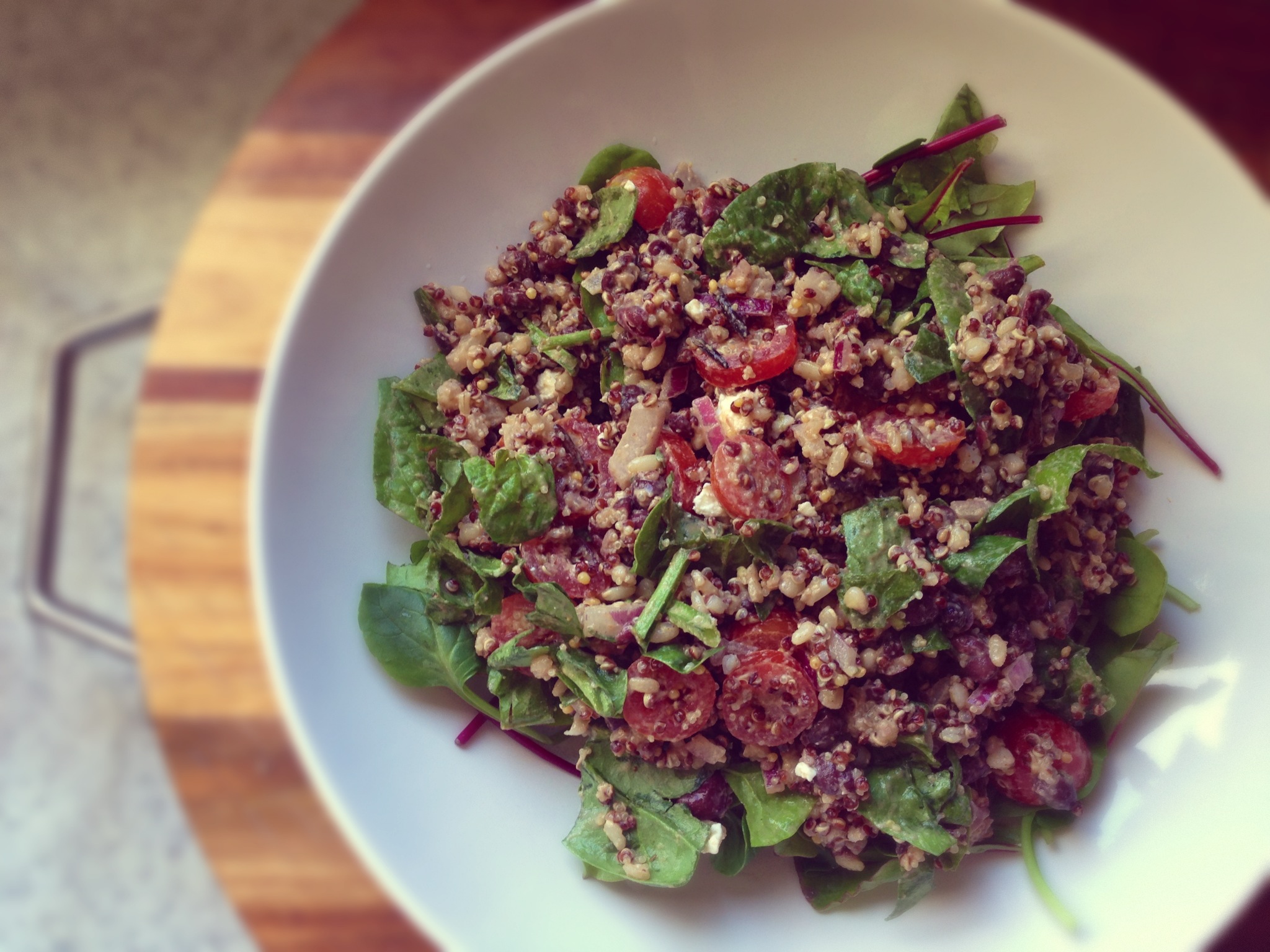
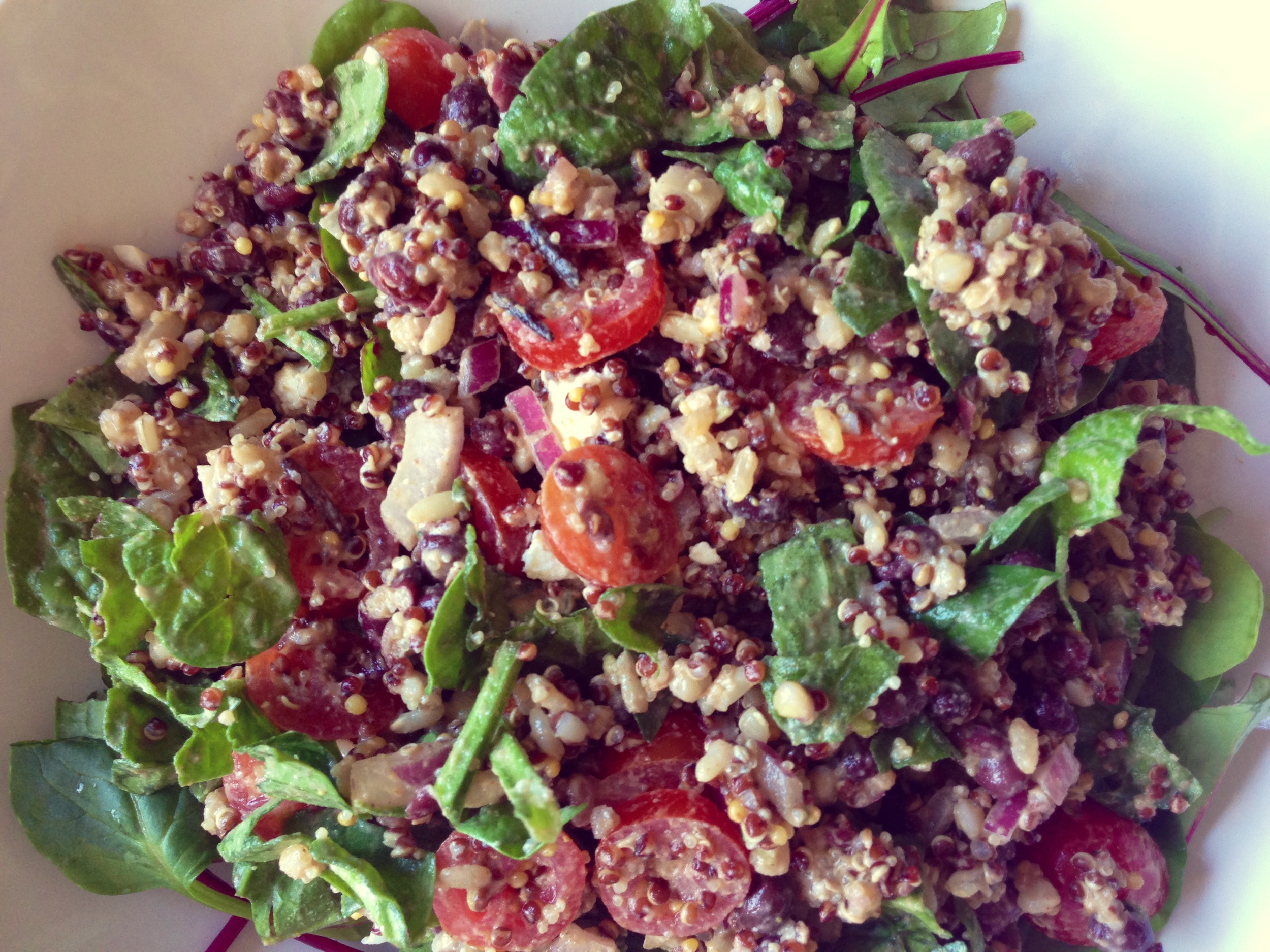
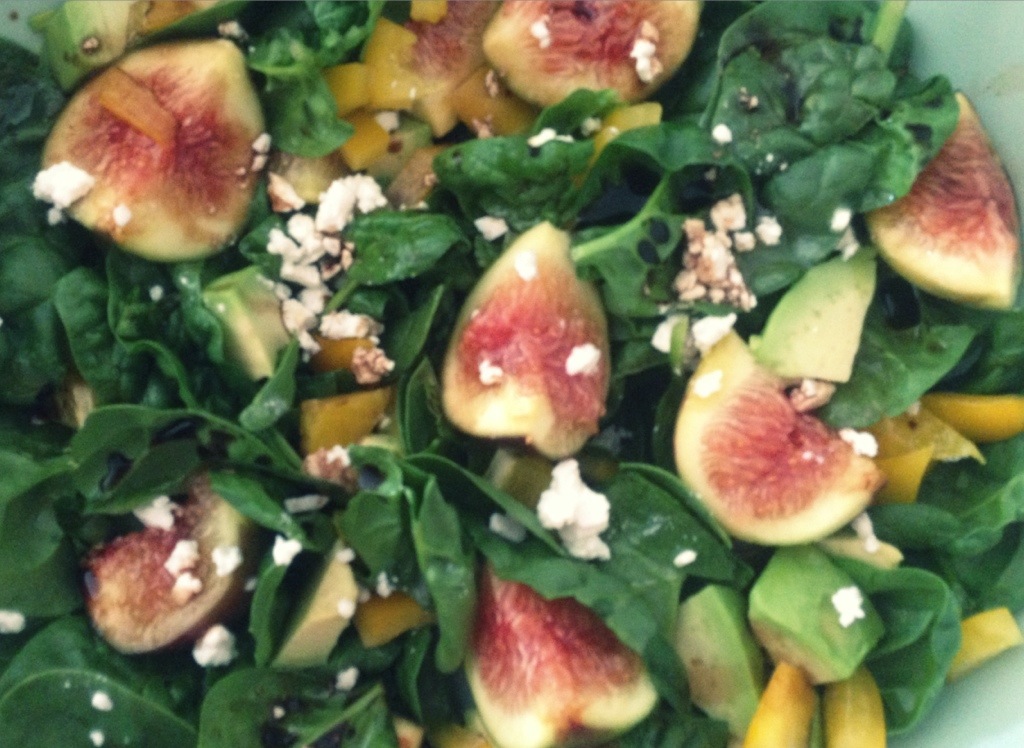
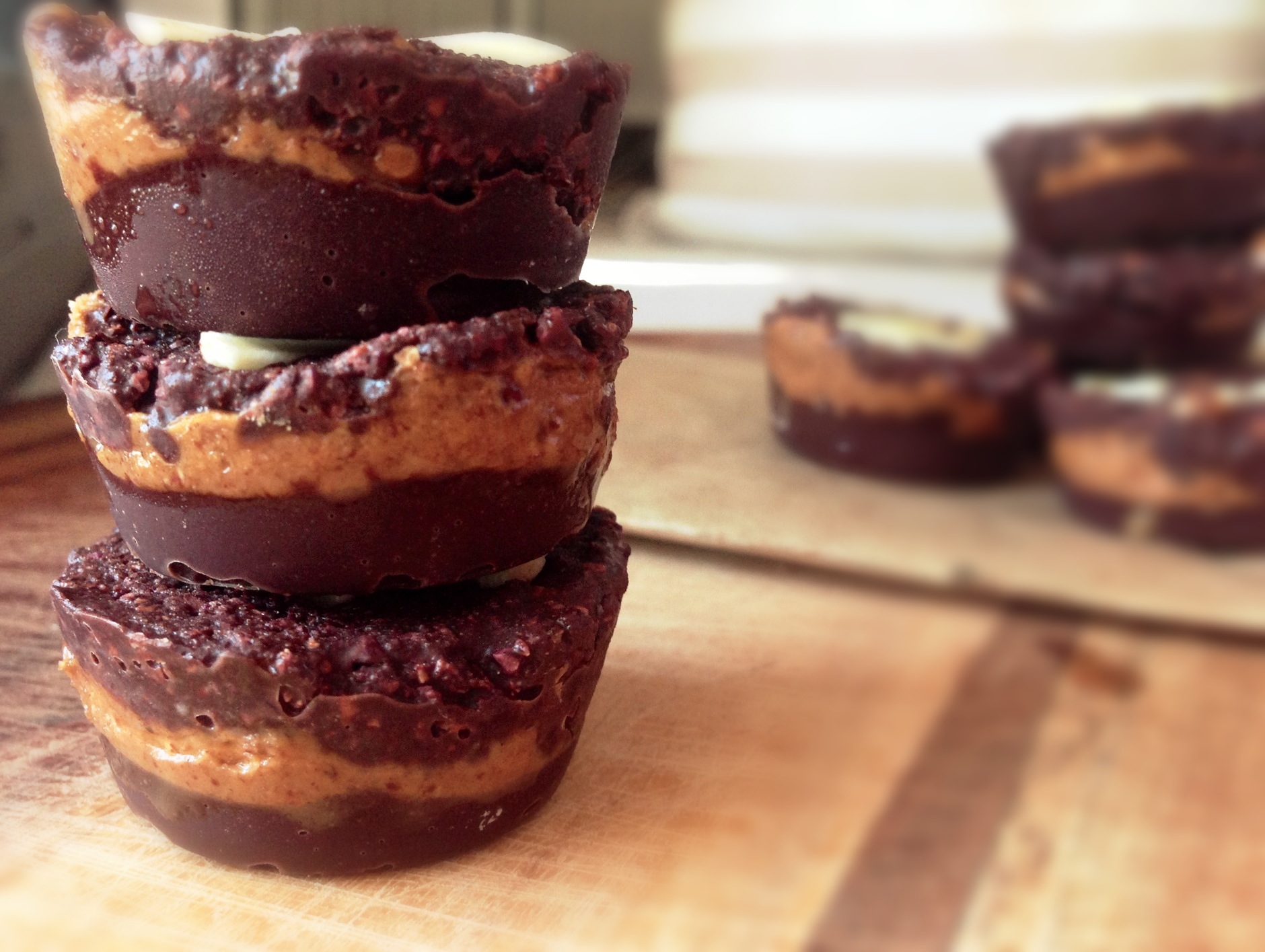

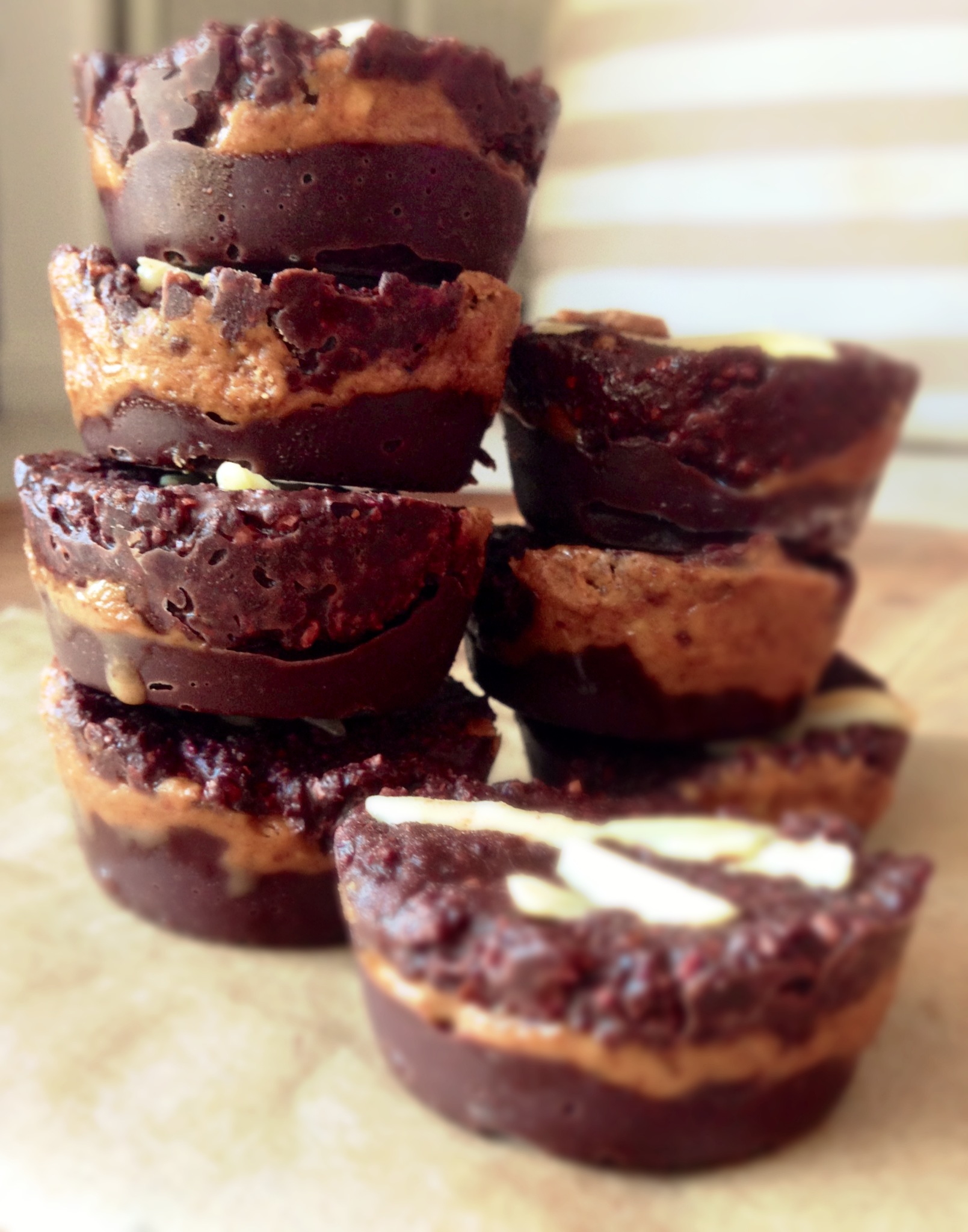
















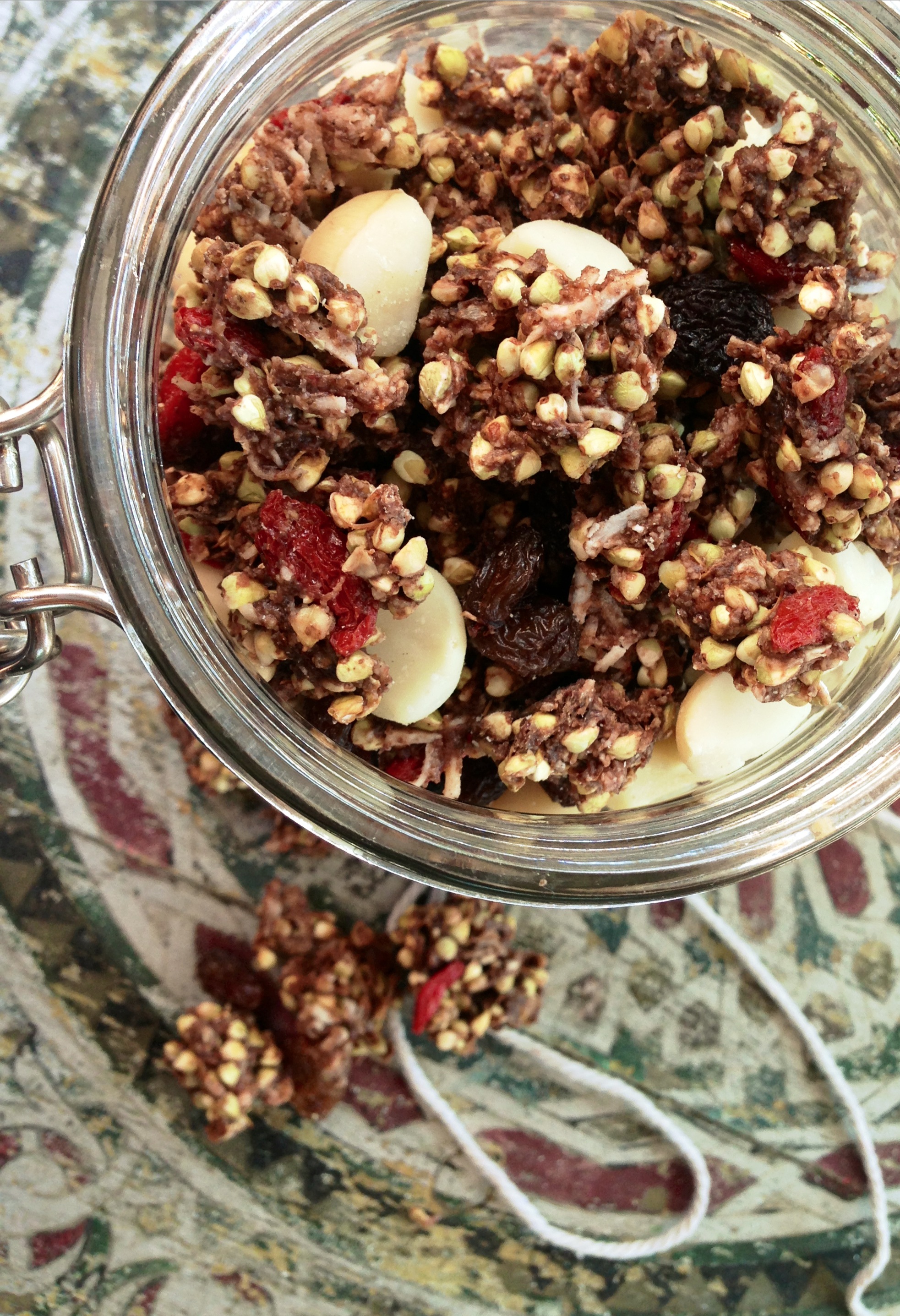
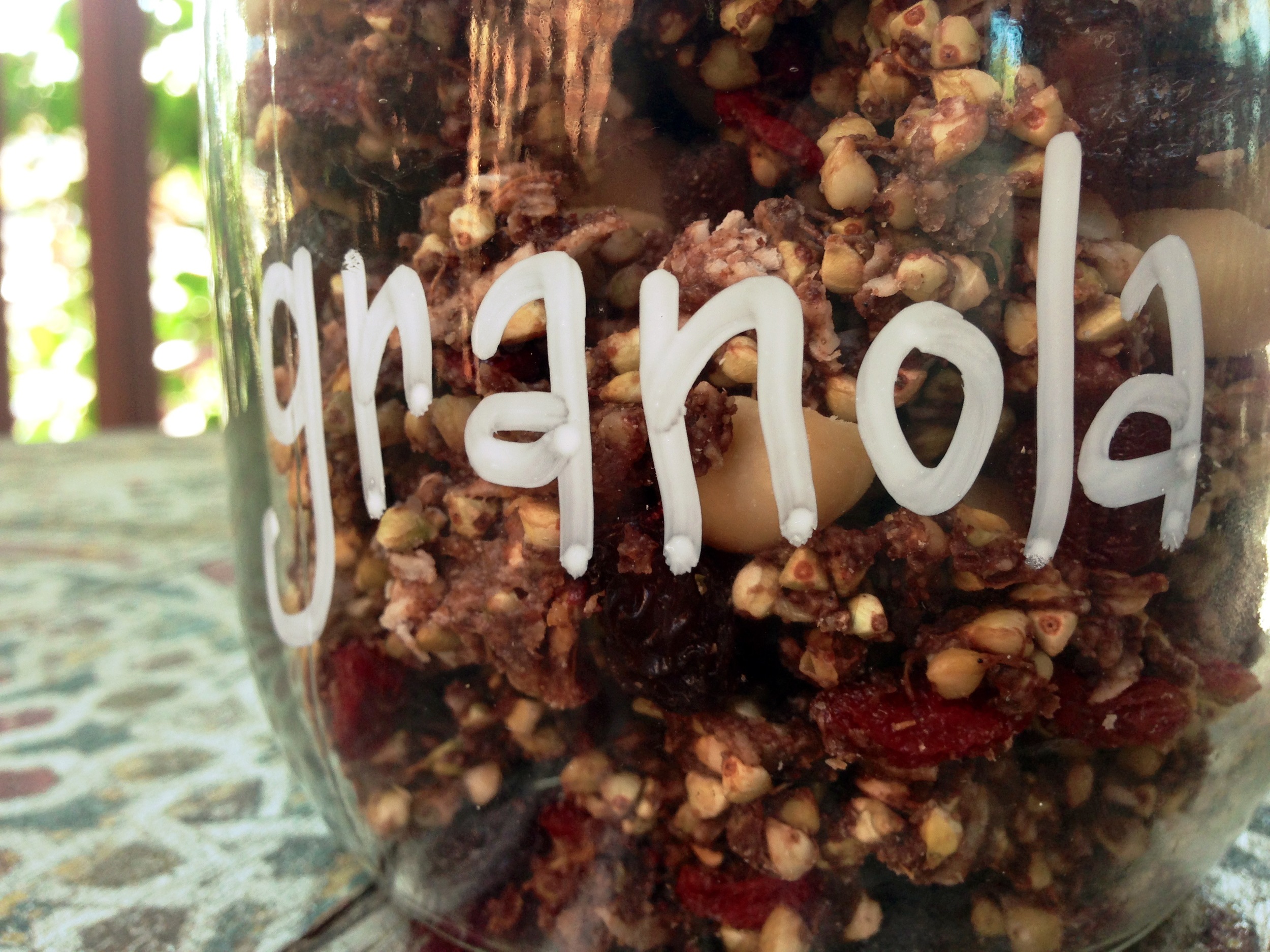
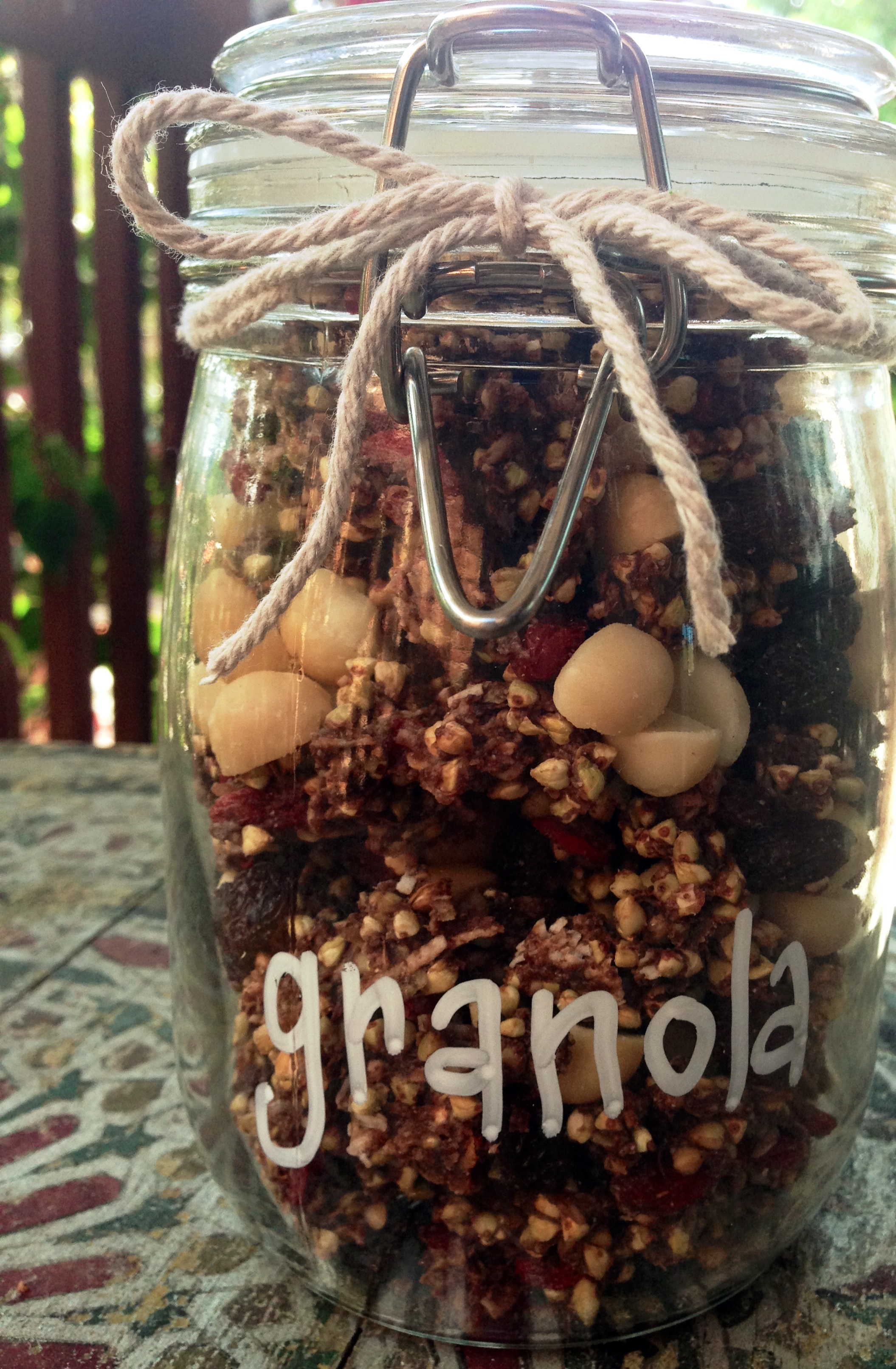
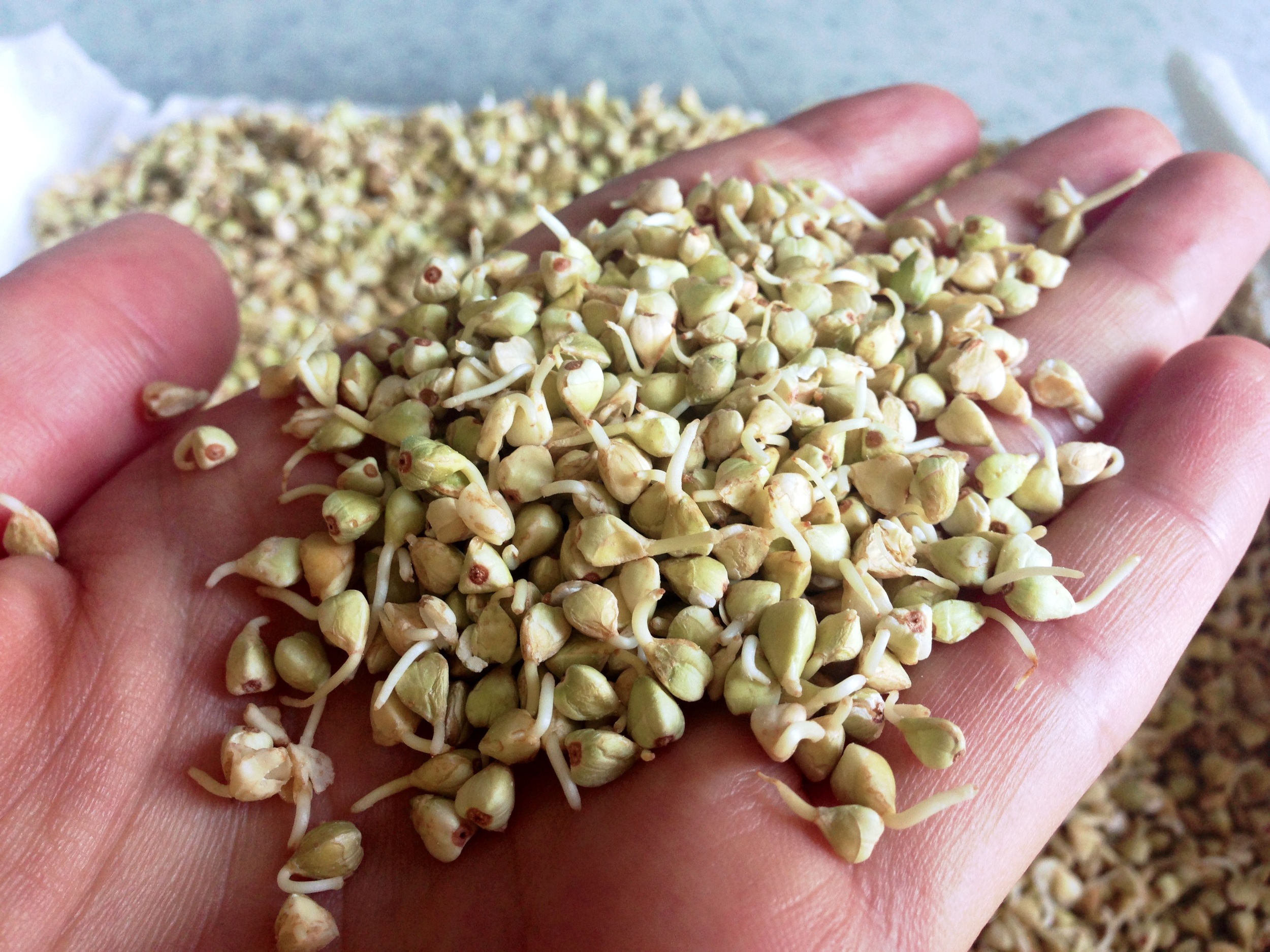

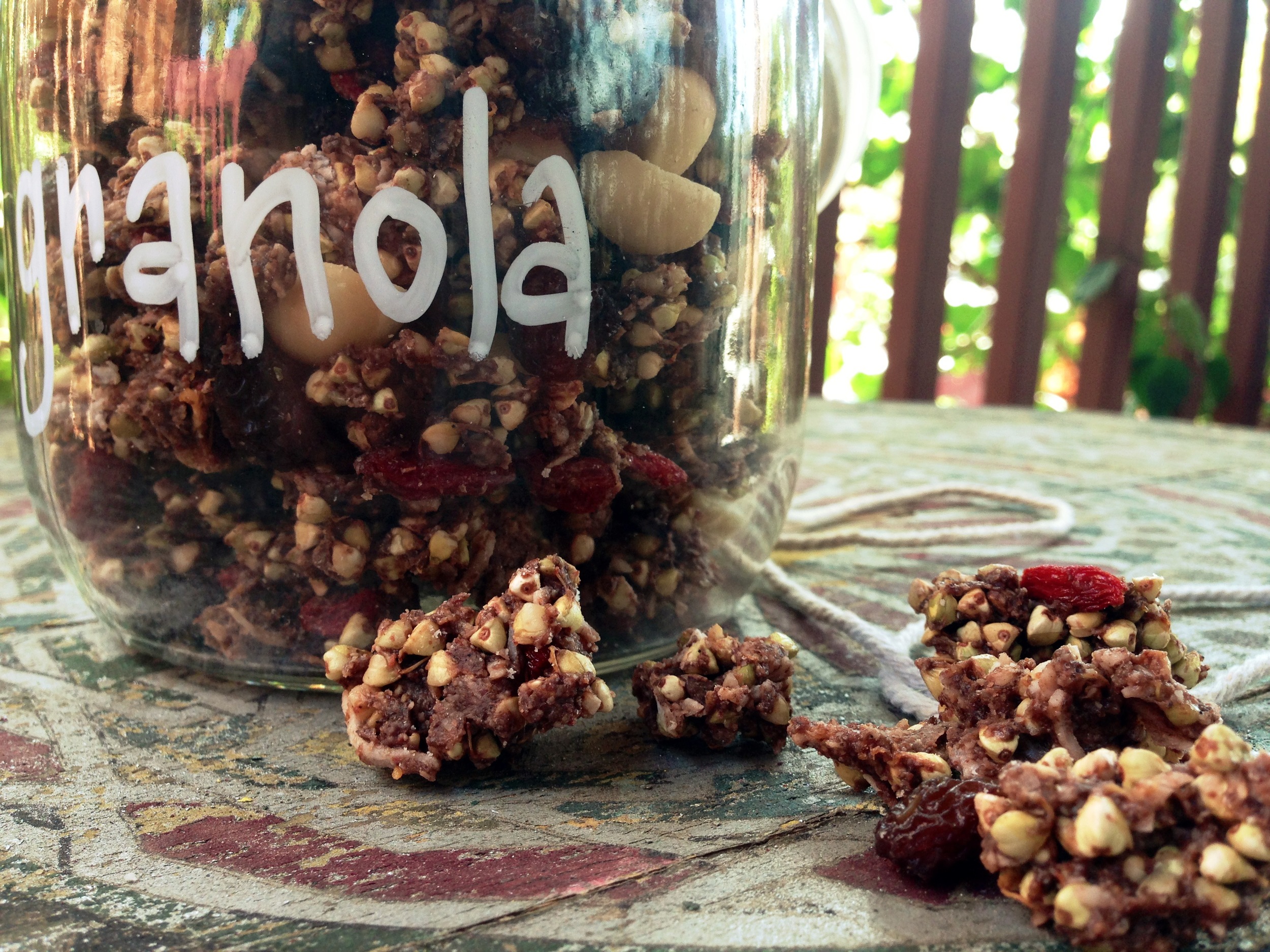

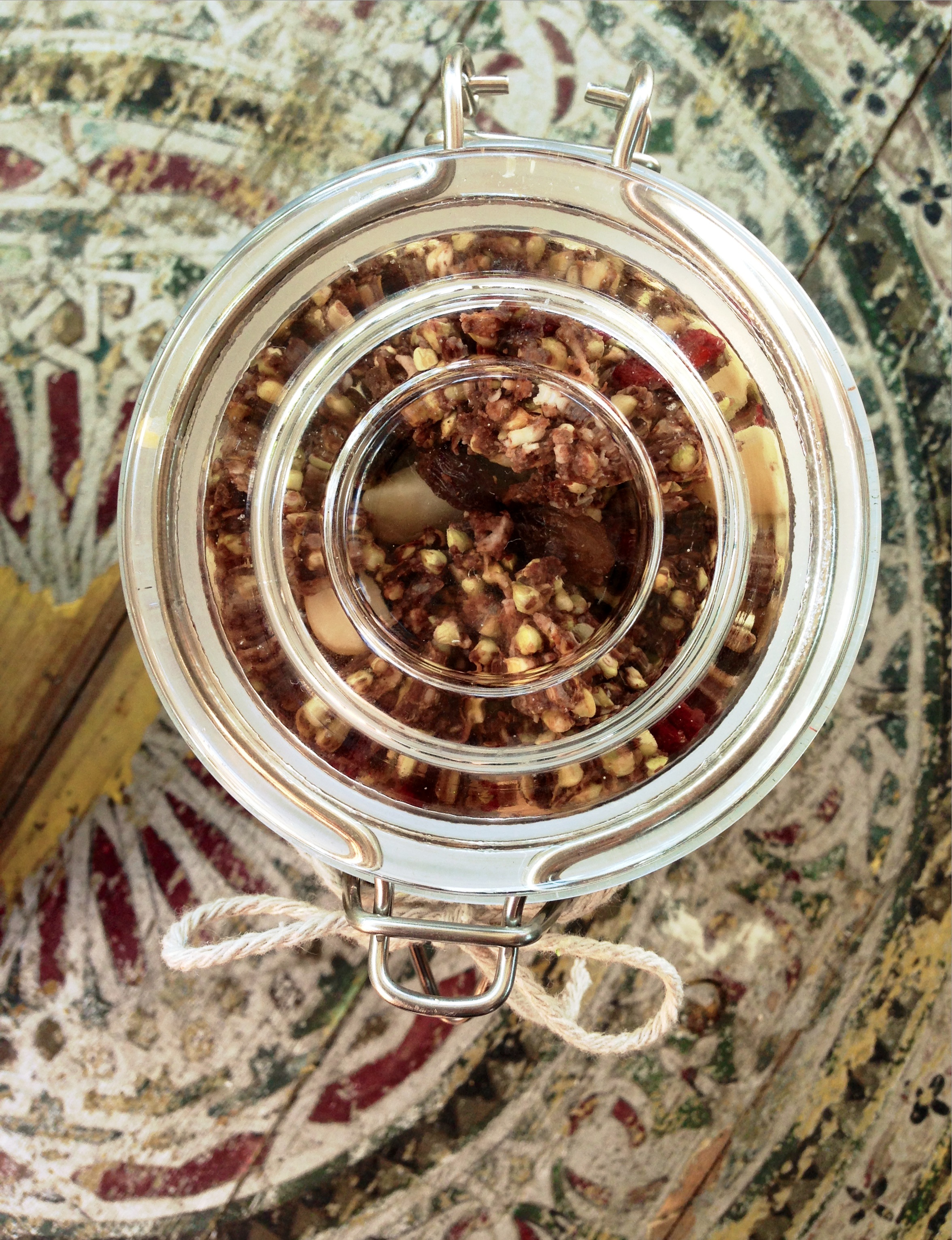
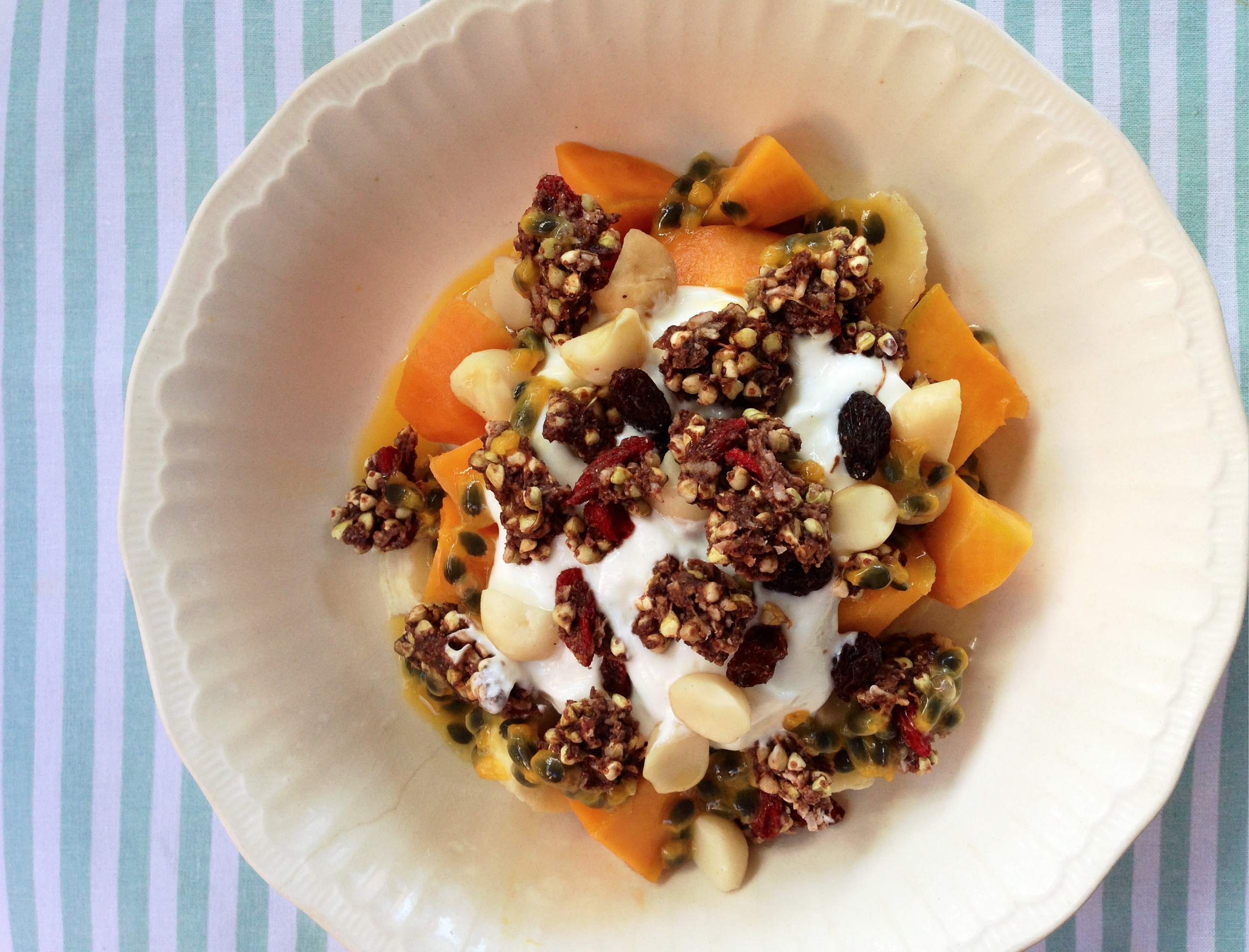
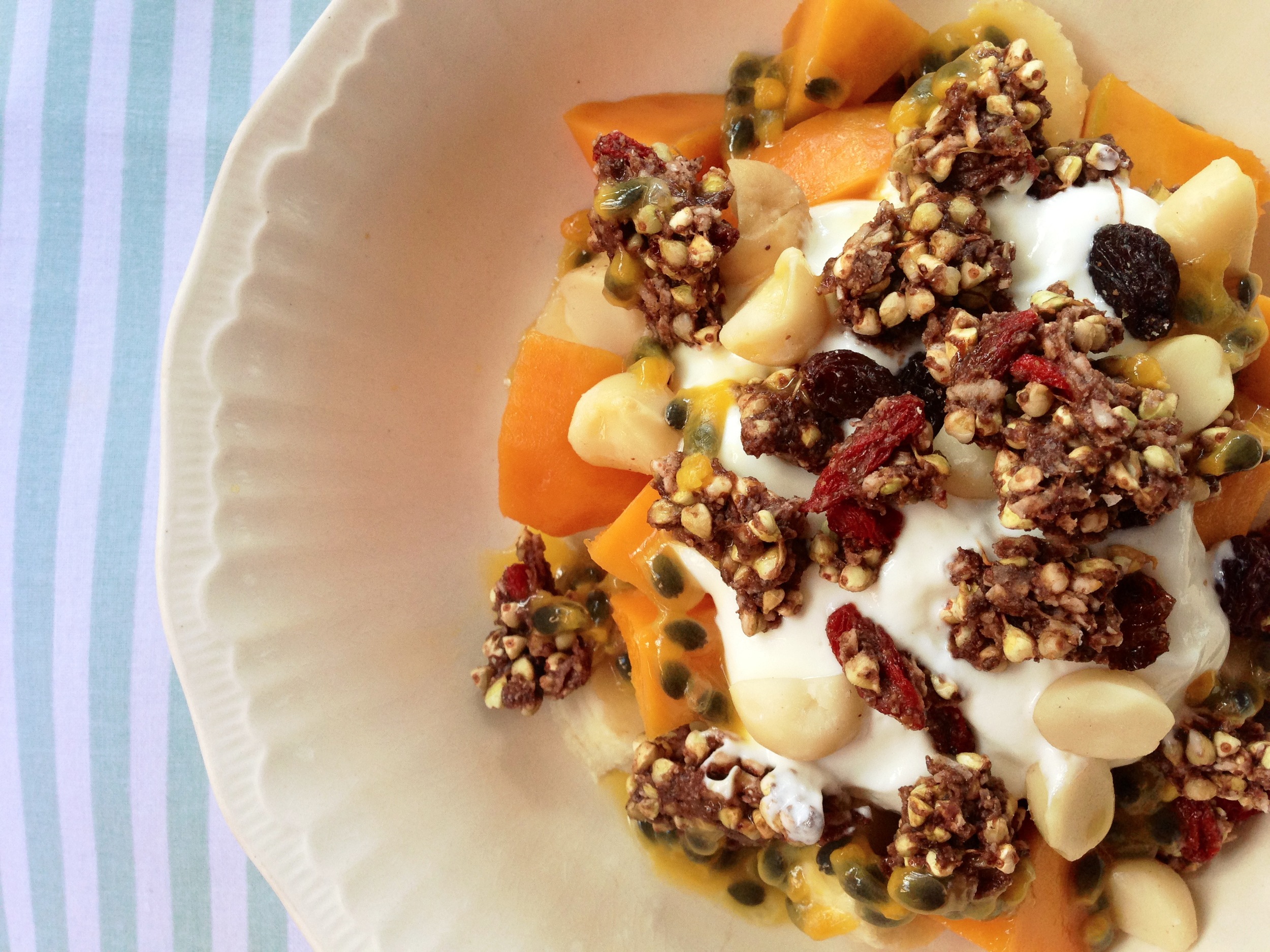

![image[6]](http://static.squarespace.com/static/544dd801e4b0117bc5e1ded2/54571ffde4b0f61dd0d6fe3b/54572004e4b0f61dd0d70035/1361609263000/image6.jpeg?format=original)





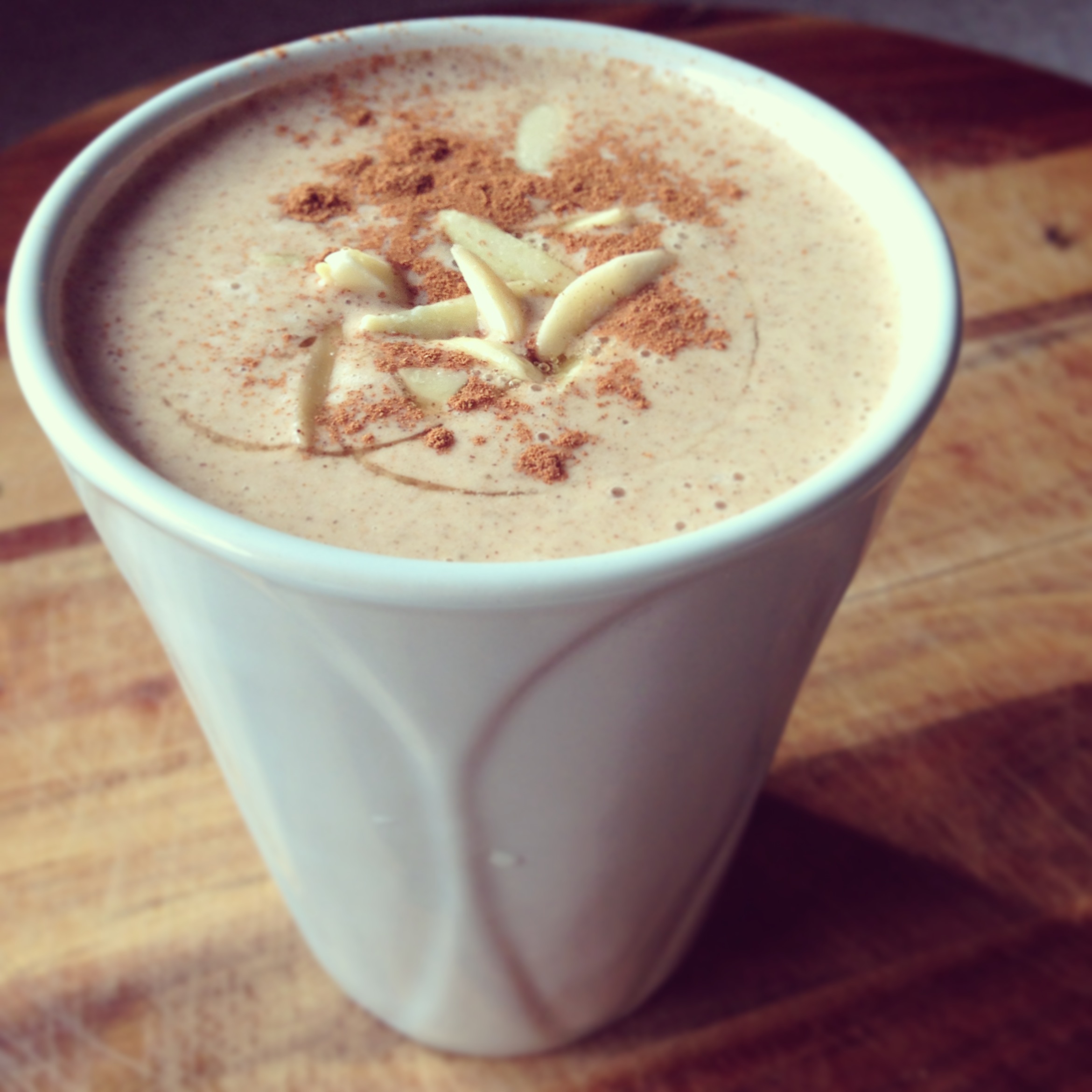










 Frozen yoghurt blocks:
I take this as a perfect opportunity to use up the last bit of my yoghurt from the week before it goes off. I like to combine it with honey/agave/maple syrup and any kind of chopped fruit.
Frozen yoghurt blocks:
I take this as a perfect opportunity to use up the last bit of my yoghurt from the week before it goes off. I like to combine it with honey/agave/maple syrup and any kind of chopped fruit.
